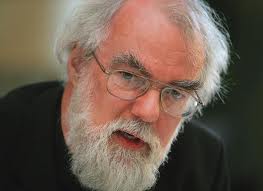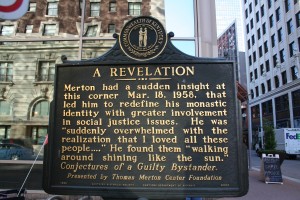Vänner,
För er som inte läser relativt komplicerad engelsk text har jag gjort utdrag ur La Civiltà Cattolicas stora intervju med påven. Intervjun är gjort på italienska men jag översätter till svenska från tidskriften Americas översättning till engelska. Det finns alltså flera felkällor än min bristfälliga engelska. Jag hoppas ändå att ni skall ha glädje av översättningen. Det påven säger är på många sätt revolutionärt – i varje fall som ansatser. Det är en viktig text som kommer att vara utgångspunkt för alla kommande diskussioner om kyrkans framtid.
Gert Gelotte
Påven om att använda omdöme:
Omdöme tar tid. Exempelvis tror många att förändringar och reformer kan genomföras snabbt. Jag tror att vi alltid behöver tid för att lägga grunden till verklig förändring.
Om ultrakonservatism:
Mitt auktoritära och snabba sätt att fatta beslut ledde till att jag fick allvarliga problem och anklagades för att vara ultrakonservativ … Jag har har aldrig tillhört högerflygeln. Det var mitt auktoritära sätt att fatta beslut som skapade problem.
Om ofelbarhet:
Att tänka med kyrkan är mitt sätt att vara en del av detta folk. Alla de troende, sedda som helhet, är ofelbara i trosfrågor … därför skall vi inte ens tänka tanken att tänka med kyrkan endast betyder att tänka med kyrkans hierarki.
Om kyrkan:
Kyrkan, som vi skall tänka med, är allas hem, inte ett litet kapell som endast rymmer en liten grupp utvalda människor.
Om vad kyrkan behöver:
Det som kyrkan behöver mest i dag är förmågan att hela sår och värma de troendes hjärtan … Jag ser på kyrkan som ett fältsjukhus efter ett slag. Det är meningslöst att fråga svårt sårade personer om de har högt kolesterol eller problem med blodsockret. Du måste hela hans sår. Därefter kan vi tala om allt det andra.
Om kyrkans reformbehov:
Den första reformen måste vara kyrkans tilltal
Biskoparna, i synnerhet, måste kunna stödja stiftsmedlemmar som vill följa Gud (the movements of God) så att ingen lämnas efter. Men de måste också klara av att följa med dem som har smak för att finna nya vägar.
Om abort, homosexualitet och preventivmedel:
Vi kan inte enbart betona frågor om abort, homosexuellas äktenskap och preventivmetoder. Det är inte möjligt. Jag har inte talat mycket om dessa ting och det har jag blivit kritiserad för. Men när vi talar om dessa frågor måste vi tala om dem i ett konkret sammanhang. Kyrkans undervisning är tydlig och jag är en kyrkans son, men det är inte nödvändigt att tala om dessa frågor hela tiden.
En person frågade mig en gång , på ett provokativt sätt, om jag godkänner homosexualitet. Jag svarade med en annan fråga: Säg mig, när Gud ser på en homosexuell person, omfattar han den personen med kärlek eller avvisar och fördömer? Vi måste alltid se till personen … Det är nödvändigt att visa barmhärtighet.
Om ekumenik.
Den gemensamma reflektionen, när vi betraktar hur kyrkan styrdes under de första århundradena före splittringen mellan öst och väst, kommer så småningom att bära frukt. I ekumeniska möten är det viktigt att inte bara lära känna varandra bättre utan också att se vad Anden har försett de andra med som en gåva till oss.
Vi måste gå eniga med våra skillnader, det finns ingen annan väg till enhet. Detta är Jesu väg.
Om kvinnan i kyrkan:
Vi måste arbeta hårdare för att utforma en gedigen teologi om kvinnan. Bara så blir det möjligt att bättre reflektera över deras roll i kyrkan. Den feminina kallelsen behövs överallt där vi fattar viktiga beslut. Utmaningen idag är att fundera över kvinnans bestämda plats överallt där kyrkans auktoritet utövas.
Om tridentinska mässan:
Jag anser att påven Bendikt beslut att tillåta ett bredare användande av den tridentinska mässan var på sin plats och motiverat av en önska att hjälpa människor som har detta behov. Det oroande är emellertid risken för ideologisering och exploatering.
Om tvärsäker tro:
Om någon har svar på alla frågor, så är det ett bevis på att Gud inte är med honom. Det betyder att han är en falsk profet som använder religion för egna syften. De stora ledarna för Guds folk, som Moses, hade alltid utrymme för tvivel. Du måste lämna utrymme för Herren, inte för tvärsäkerhet. Vi måste vara ödmjuka. Osäkerhet finns i varje gott omdöme …
Om den kristne är en återställare, en legalist, om han vill ha allt klart och säkert, så kommer han inte att finna någonting. Tradition och minnet av det förflutna måste hjälpa oss att finna modet att öppna nya områden för Gud. De som idag alltid söker efter disciplinära lösningar, de som längtar efter doktrinär säkerhet, de som istadigt försöker återvinna ett förflutet som inte längre existerar har en statisk och inåtvänd syn. Då blir tron en ideologi bland andra ideologier.
Om förändring i kyrkan:
Tänk på när slaveriet accepterades och dödsstraffet var tillåtet … Efter hand växte vår förståelse av sanningen. Exegeter och teologer hjälpte kyrkan att mogna … Även utvecklingen i andra vetenskaper hjälper kyrkan att växa i självförståelse. Det finns kyrkliga regler som tidigare fungerade, men som har förlorat värde och mening. Synen på kyrkans undervisning som en monolit som måste försvaras utan nyanser och utan olika tolkningar är felaktig.








3 svar till ”Har Gud ångrat sig och tar tillbaka gåvan med obligatoriskt celibat ?”
Irène.
Jag vet inte om du fått det här brevet från CCReform avsett att undertecknas senast den 18 sept av världens reformvänner och sedan skickas till påven och hans åttamannaråd inför oktobermötet?
Letter to Pope Francis:
His Holiness, Pope Francis
Cardinal Giuseppe Bertello, President of the Vatican City state administration
Cardinal Francisco Javier Errazuriz Ossa, Retired Archbishop of Santiago, Chile
Cardinal Oswald Gracias, Archbishop of Mumbai, India
Cardinal Reinhard Marx, Archbishop of Munich and Freising, Germany
Cardinal Laurent Monsengwo Pasinya, Archbishop of Kinshasa, Congo
Cardinal Sean Patrick O’Malley, Archbishop of Boston
Cardinal George Pell, Archbishop of Sydney, Australia
Cardinal Oscar Andrés Rodríguez Maradiaga, Archbishop of Tegucigalpa, Honduras
September xx, 2013
Re: Request for this to be placed on the advisory council meeting agenda, October 1-3, 2013: Acknowledgement of the rights and responsibilities of the baptized faithful to have an effective voice in the decision-making of our Church.
Dear Pope Francis and Brother Cardinals:
It is out of a deep concern for the Catholic Church, in the face of its many crises, that we, representing millions of Catholics from around the world, have collaborated in writing this letter. We are filled with hope that church governance will be discussed at your October meeting and we respectfully request that you give primary consideration to acknowledging the rights and responsibilities of the baptized to have a voice of influence in the decision-making of our Church.
Like you, we have experienced the catastrophic loss of trust in our Church, arising from the global revelations of Catholic clergy sexual abuse and hierarchical cover up. Abuses of power at the Vatican bank, as well as damaging disrespect and marginalization experienced by the laity, have caused many of our sisters and brothers to abandon Catholicism altogether. Our Church seems unable to read the signs of the times and so ”handing on the faith” to future generations has become ever more challenging.
In our understanding, what lies at the root of many of these problems is the destructive effects of clericalism. We support your desire, Pope Francis, to rid our Church of clericalism in order that we become a community of equals called, through our baptism, to live and proclaim the Gospel of Jesus. All Catholics have the right, innately deriving from our baptism, to have an effective and deliberative voice in the decision-making of our Church. The full participation of the faith community is in accordance with the Gospel, the tradition of the early Church, and the vision of Vatican II.
To this end we have outlined five areas that reflect the hopes and needs of the sensus fidei:
1. A Church that embodies the radical hospitality of Jesus in the world
We are inspired, Pope Francis, by your compassion for the poor and desire for social justice as well as your personal commitment to live more simply. We want to work, as sisters and brothers, to build communities free from oppression, violence, hunger, poverty and the degradation of God’s creation. But our commitment to justice is compromised and often viewed as hypocritical because injustice exists within the Church itself. We hope for a time when all Catholics come to experience a joyfully renewed church that truly places hospitality and respect for the dignity and equality of every person at the heart of its lived mission.
2. A Church that welcomes open dialogue among its members
When speaking in Brazil, Pope Francis, you advised that ”dialogue, dialogue, dialogue” is a cornerstone of all human progress, and we agree. The freedom of expression (including faithful dissent when required), freedom of reasoned inquiry, and the primacy of an informed conscience are vital to the health of our Church. We believe that prophetic women and men are continually calling us to engage the urgent theological, pastoral, social and environmental questions of our time in new and inspiring ways. In this light, we recommend reinstating theologians, clergy and religious who, since Vatican II, have been censored and/or sanctioned for following their conscience. Secondly, as has been expressed by so many Catholics around the world, we believe that the Apostolic Visitation of US Women Religious and the investigation of the Leadership Conference of Women Religious was unwarranted and unjust. Open dialogue cannot exist where fear of punitive action exists.
3. A Church that recognizes the fundamental equality of its members
Catholic teaching tells us that all persons have been created with equal dignity in the image of God. Therefore church structures must reflect this reality. Since all governance in the Church now rests exclusively with ordained male celibate priests, this excludes the vast majority of baptized Catholics. Therefore we recommend a canonical study of the feasibility of linking church governance to baptism rather than to ordination. With regard to ordained ministry, we recommend that identifying the call be based on individual and communal discernment of the candidate’s gifts, spirituality, pastoral sense, and theological formation, rather than gender, sexual orientation, or state in life. We reject the sexist exclusion of women from full participation at all levels of the Church. Equally, it is unacceptable to deny our gay and lesbian brothers and sisters access to full participation in every aspect of Church life and ministry. And it is unjust to ordain married male ministers from other denominations, while refusing to accept lifelong Catholic priests who have left the active ministry to marry.
4. A Church with greater participation of the baptized in governance:
Addressing the needs of our Church requires implementing collegial systems and structures based on:
i) participation of the faithful in the selection and tenure of bishops
ii) reinstatement of the principle of subsidiarity in parish councils, diocesan pastoral councils, and national conferences of bishops
iii) inclusion of qualified lay men and women serving in leadership positions in the Curia
Implementation of collegial structures will promote a culture of accountable servant leadership that more fully orients the Church toward the common good.
5. A Church that effectively confronts and prevents sexual abuse
The scandal of clergy sexual abuse can only be overcome when the bishops who facilitate or ignore the abuse are removed from office and brought to justice by church and civil authorities with universal, binding protocols established and implemented. The Catholic Church must earnestly examine the complex of systemic causes that have led to this scandal of global proportions and do everything in its power to prevent it in the future.
In closing, we ask you once again to recognize the rights and responsibilities of the baptized to participate in the deliberative decision-making of our Church. We offer to send a delegation to the Vatican to further discuss our proposal. We look forward to your reply as, together, we continue this important dialogue for the good of our church. We pray the wisdom of the Holy Spirit be upon you and your deliberations.
Your sisters and brothers in Christ,
[Signatures of every participating organization and individual]
CC: Monsignor Marcello Semeraro, Bishop of Albano, panel secretary
Cardinal Gianfranco Ravasi, President, Pontifical Council for Culture
Archbishop Carlo Maria Viganò, U.S. Apostolic Nuncio
Signers of the Letter:
The signers will be the names of all participating organizations. Therefore we will need the name of your reform group accompanied by the details outlined below. Individuals not associated with a group are also welcomed to sign.
Samuel
Jättebra att du påminner…….Det kan inte göras nog många gånger……med tanke på att den officiella katolska kyrkan i Stockholms katolska stift inte har som ambition att vilja sprida information till katoliker i Sverige om vad som pågår därute bland reformrörelser i den universella kyrkan ……….
Ambitionen är TVÄRTOM att mörka allt för svenska katoliker som pekar på att det VISST är KATOLSKT i den universella kyrkan att offentligt önska reformer av det slag som KV Manifest……..
http://www.katolskvision.se/blog/?p=9834
http://www.katolskvision.se/blog/?p=10357
// Irène
Läs gärna nedanstående blogg i frågan som detta inlägg tar upp:
http://aletheia.se/2013/09/13/vatikanen-oppen-for-omprovning-av-celibatkrav/
Därtill en lång kommentarlista!
Krister